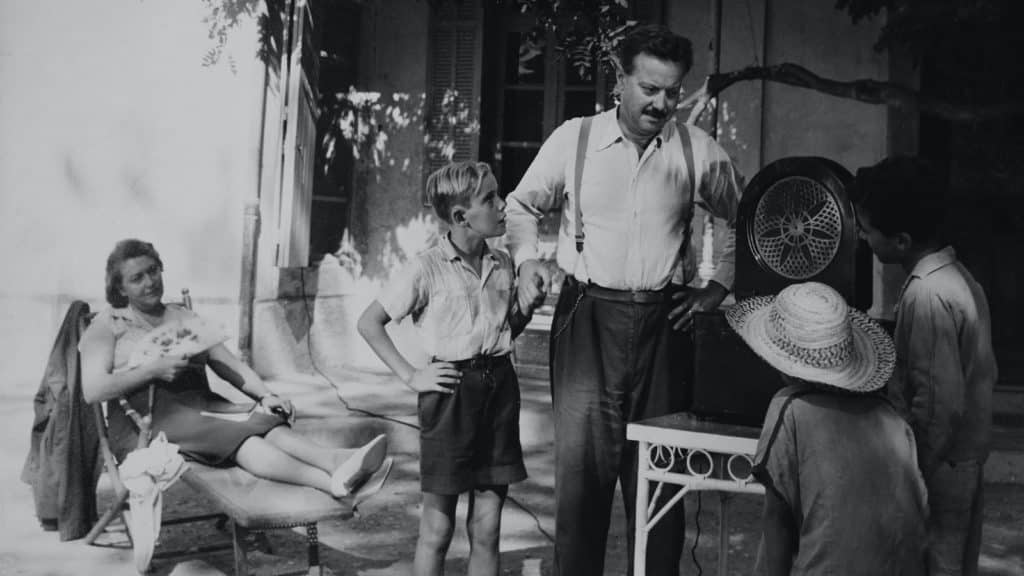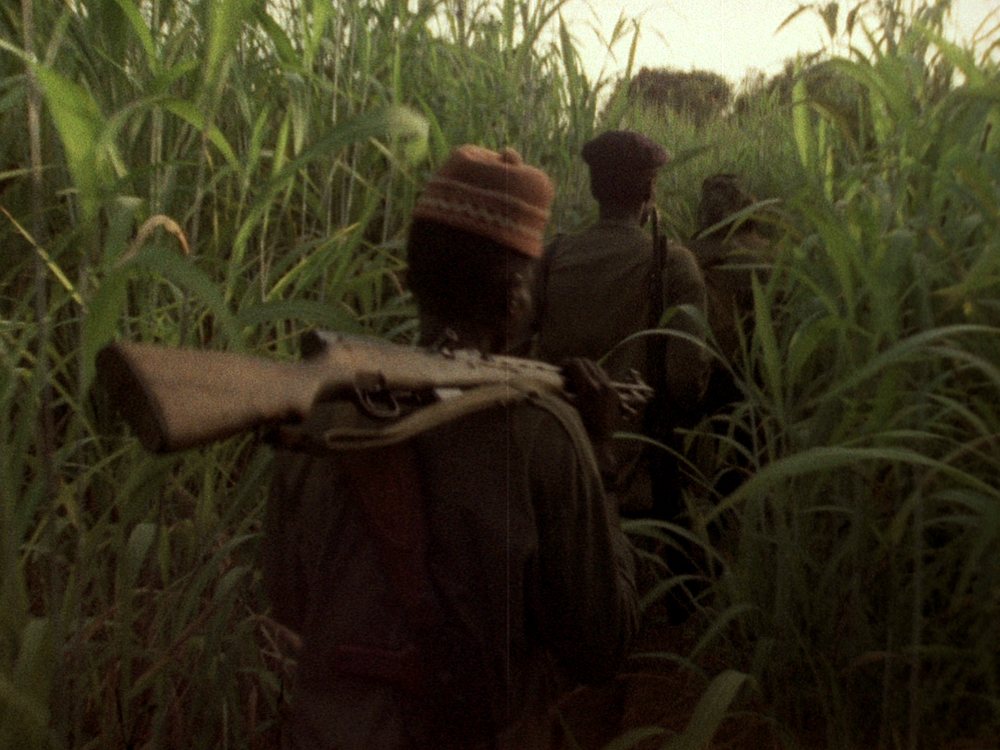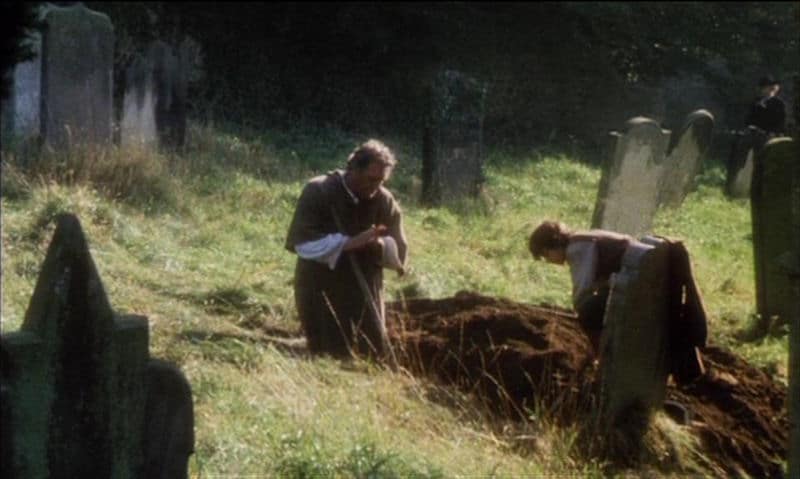Read also:
How to Watch FX Live Without CableHow To Watch AMC Without CableHow to Watch ABC Without CableHow to Watch Paramount Network Without CableKinoKultur is a thematic exploration of the queer, camp, weird, and radical releases Kino Lorber has to offer.
Most cultural documents of The Algerian Revolution (1954-1962) highlight its blistering brutality. As the critical writings of Franz Fanon and films like The Battle of Algiers show us, this war for independence was a particularly violent one known for its torture and guerilla warfare. Yet, for French settlers, after the heat of armed struggle came a cold sense of loss.
James Blue’s brilliant 1962 film The Olive Trees of Justice interrogates that sense of displacement to richly evocative ends. After fighting in World War II and deciding to remain in France, Jean (Pierre Prothon) returned to Algeria to visit his dying father. Shocked by how occupied his once idyllic homeland now appears, Jean wanders around, encountering old friends and memories. In the process, he’ll understand that Algeria was never really his.
Known chiefly for his documentaries, Blue brings his cinema-verite style to an adaptation of Jean Pelegri’s 1959 novel. Such a candid style allows us to see the quotidian elements of occupation and war, the way regular life moves about in the hustle and bustle of history. The opening script tells us everything we see is shot on location in Algeria using real people. People run errands past police checkpoints; white folks look the other way while Arab men are stopped and frisked on the sidewalk. They are little moments that tell a much larger story.

Like Jean, Pelegri was part of the mass exodus of white settlers out of Africa following Algeria’s independence in the early 1960s. Once secure landlords parading themselves as benevolent benefactors to servile serfs, the former colonists were now faced with an uncertainty of place and future that was never supposed to be part of the white colonial experience. Pelegri even plays Jean’s ailing father.
As with all stories of white colonial loss, nostalgia plays a crucial part in The Olive Trees of Justice. As he sits with his parents, he recalls the great farm they had when he was a child. Jean’s father was one of the first waves of French entrepreneurial settlers in Algeria and cultivated large swathes of farmland where Jean and his friends Said, and Boralfa would play. They sit together in the olive tree and play amongst the rows of vines or mists from pesticides, happy and free.
Yet Jean’s narration has the benefit of hindsight. The pluralism of his youth becomes twinged with irony and guilt. The moments he remembers show signs of his colonial indoctrination. His “correcting” the Arab holy man on his calendrics, asserting the truth of the Christian calendar over Islamic, feels dominating. Using the radio to set the world time by French standards feels like a death grip around an entire cosmology.
When he, Said, and Boralfa would play, anything seemed possible. But when he returns, Jean has to confront the social immobility of his friends and confront the racial reasons behind his privilege and success in the colonial center. Jean sees limits everywhere. The police are patrolling streets, hedges and wire fences have gone up around farms, and Arab Algerians cannot improve their lives. No one had seen Said since he escaped the soul-crushing racism by fleeing to the mountains. Boralfa works in a garage, exploited by white folks.
Colonialism confronts childhood in the shade of The Olive Trees of Justice. The land that once seemed supportive and fertile has strong roots in exploitation. What’s brilliant and poignant is how the idea of Jean’s childhood farm changes as he sees and considers more of Algeria. He believed he was the golden son of a kingly farmer who improved an empty spot into a fertile and lucrative one. Yet witnessing the struggle for this land during the revolution, he understands that his father was given land stolen by the French government, that they had privatized once communal land.
Now Jean is possessed by an alienation from the land that’s the mirror image of the one enforced on the colonial subject. Both ends have their homeland ripped out underneath them, causing a socially, culturally, and psychologically wandering identity. But The Olive Trees of Justice deftly shows us that white loss is beset with guilt and shame when the colonial oppressor is excised. The film is a close up on a crack in whiteness which shows us its fragility.
James Blue would have been easy to turn this into a white savior film with Jean “going native” and joining the cause. It could have also been an elegy for a civilization gone with the wind. But instead, it shows how the shame and guilt of white colonial loss are justified. His loss of homeland doesn’t coddle jean; he learns to accept it as part of a historical correction. By the end of the film, he’s wandered through the entire dialectic of colonial history. He comes to Algeria rich from his white privilege, realizes that privilege is built on African exploitation, understands it’s time for Africans to regain their liberties and accepts his loss as a vital part of that return.

It’s all very benevolent, however. Jean and his mother still get to make a sentimental exit. The violence of occupation is noticeably kept to the periphery. It would be a mistake to claim that Olive Trees is a complete picture of revolution or the colonizer psychology. Richly demonstrated in Goram Olsson’s documentary Concerning Violence (2014), which highlights the anti-colonial writings of Fanon, violence was a crucial part of The Algerian Revolution and laid the groundwork for how Black American radicals would understand the necessity of armed struggle.

It makes sense that some of the realities of revolution are swept under the rug; Olive Trees is a children’s story. We spend a lot of time with Jean as a youth, and we watch his youthful innocence get shattered as he accepts his part in colonialism. There would have been a more radical left hook if there had been more violence. In war and colonialism, children live in danger too. Something like the social realism of Ken Loach’s Black Jack (1979) would have helped because Loach isn’t afraid to show children’s responses to a violent and chaotic world. Though set centuries apart, both films feature children living amongst feudal systems. In Black Jack, the main boy, Tolly, witnesses oppressive violence, so his and the audience’s desire for social change has more conviction. Jean isn’t an ally to Algerians and is more of a passive acceptor of the change happening around him.
Though The Olive Trees of Justice allows Jean to retain moral righteousness and innocence in the end, it’s not without its incisive critiques of the white colonial imagination and the realities of colonial occupation. Childhood bliss becomes colored by ignorance of the real world. Confronting this ignorance means knowledge. And sometimes, especially in the case of colonial loss, knowledge isn’t power; it’s acceptance and accountability.
The Olive Trees of Justice, Concerning Violence, and Black Jack are all available on Bluray/DVD from Kino Lorber.